
SPEAKERS
Conference moderator
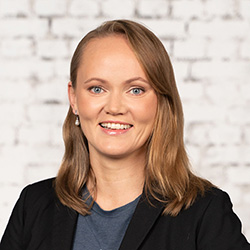
Kai Klandorf
Kai has over 16 years of experience as a moderator, discussion leader and trainer. Kai has led and participated in various global debate programs, for example promoting the debate movement in countries such as Nepal, Norway, Moldova, Myanmar, etc. Kai holds a Bachelor's degree in education and a Master's degree in English from the University of Tartu. In recent years, Kai has furthered her education by obtaining a coaching qualification. Kai has worked for many years as a director of the Estonian Civil Society. Since 2023, she has been working in the Innovation Team of the Government Office.
Opening remarks and greetings
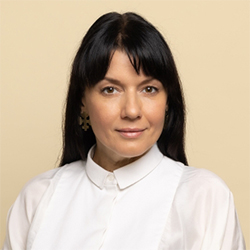
Heidy Purga
Heidy Purga has served as Estonia’s Minister of Culture the Minister of Culture of the Republic of Estonia since April 2023. A radio journalist, producer and DJ, she joined the Reform Party in 2014 and was elected to the Riigikogu in both 2015 and 2019. With over 15 years of experience in Estonian electronic media, Purga has worked in television and radio as an editor-in-chief and producer. She headed the Estonian National Public Broadcasting radio station, Raadio 2, from 2004, and served as head producer of Estonia's premier TV music show Eesti Laul (the national Eurovision selection) from 2009 to 2015.
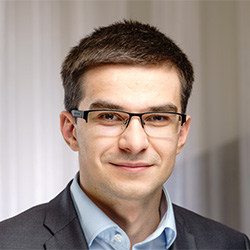
Dmitri Moskovtsev
Dmitri Moskovtsev has been leading the Integration Foundation since 2022.
As a competence centre in its field, the Integration Foundation supports the development of an integrated and cohesive society in Estonia.
Dmitri Moskovtsev has long-term experience in the public and non-profit sectors, focusing on integration, Estonian language learning, and the development of a multicultural society. Under his leadership, the foundation has significantly expanded opportunities for learning Estonian, supported new immigrants, and helped local governments provide better integration services.
At the conference, Moskovtsev will share practical and strategic insights on how to strengthen social cohesion and resilience in conditions of diversity — drawing on examples from Estonia’s experience.
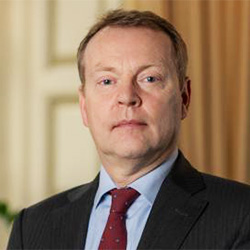
Christophe Kamp
Christophe Kamp (Netherlands) is the seventh OSCE High Commissioner on National Minorities, appointed in December 2024.
Prior to his appointment, Kamp served as the Permanent Representative of the Netherlands to the OSCE. He also worked as Director of the office of the OSCE High Commissioner on National Minorities. Christophe Kamp has nearly 25 years of experience as a diplomat in the Foreign Ministry of the Netherlands and the European External Action Service, with assignments in Europe and Africa.
Before joining the Foreign Ministry of the Netherlands in 2001, Kamp worked at the UN Department of Political Affairs in New York and with the UN Human Rights Field Operation in Rwanda. Kamp has a Master’s degree in Political Science from Leiden University and a Master’s degree in Public Administration from the Harvard Kennedy School.
Bridging Borders: Fostering Impact and Connection through Cultural Collaboration – a British Council Perspective
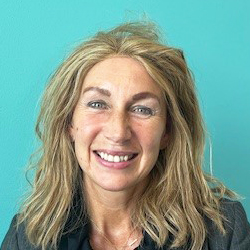
Kerry McCall Magan
Kerry McCall Magan is the Country Director for British Council Ireland. As Director, Kerry leads British Council Ireland in strategic cultural relations activity between Ireland and the UK. Excited by the possibilities and untapped potential in Arts and Education in the bilateral relationship, Kerry works constructively to convene and broker relationships between people and organisations, fostering mutual understanding, trust, knowledge and respect.
Prior to this role, Kerry’s career spanned senior roles in higher education and the cultural sectors in Ireland. She has been a Steering Group member of the National Campaign for the Arts; the Expert Panel of Creative Ireland; the Expert Committee of Culture2025: a national cultural policy for Ireland; co-founder of the Arts Management Research Studies Stream in the European Sociological Association; co-founder of Cultural Policy Observatory Ireland: an all-island research network (2014) and the Irish Journal for Arts Management and Cultural Policy (2013).
In 2023, she published Cultural Participation: the perpetuation of middle-class privilege in Dublin, Ireland (Palgrave MacMillan) and, with academics in Queen’s University Belfast and University College Dublin, she is co-editing Cultural Policy: Perspectives on the Island of Ireland (Routledge, forthcoming 2025). Kerry is a Board member of Dublin City Council Culture Company.
Panel discussion: The resilience of democracy – a dream or societal choice?
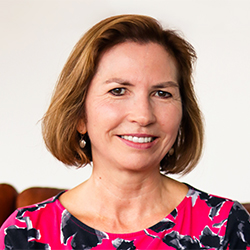
Prof Zsuzsa Csergő
Prof Zsuzsa Csergő is The Sir Edward Peacock Professor of Nationalism and Democracy Studies in the Department of Political Studies at Queen’s University, Canada. She specializes in the study of nationalism and contemporary challenges to democracy, with particular expertise on Central and Eastern Europe. Before joining the Queen’s faculty, she was Assistant Professor of Political Science and Coordinator of the Women’s Leadership Program in U.S. and International Politics at the George Washington University. From 2013-2020, she was President of the Association for the Study of Nationalities (ASN), the largest international scholarly association in the field of nationalism and ethnicity studies. She currently serves as Director of the association’s online initiative, “Virtual ASN.”
Dr. Csergő's research contributes to the understanding of tensions between nationalism and democracy in multiethnic societies. Her articles about nationalism, majority-minority relations, kin-state politics, and minority democratic agency in the EU context have appeared in leading journals in her field, including Perspectives on Politics, The Journal of Global Security Studies, Foreign Policy, Publius, Nations and Nationalism, Europe-Asia Studies,Problems of Post-Communism, East European Politics and Societies, and other venues. She is the author of Talk of the Nation: Language and Conflict in Romania and Slovakia (Cornell University Press, 2007), co-editor and co-author of collaborative volumes (books and special issues) focused on Europeanization and minority political agency, the securitization of cross-border kinship, and Central and East European politics. She is currently writing a book about the sources of minority democratic agency in majoritarian states, based on comparative research on six linguistic minorities in Central and Eastern Europe (Hungarians in Romania and Slovakia, Poles in Lithuania, and Russophones in Estonia, Latvia, and Lithuania).
Dr. Csergő leads the comparative Minority Institutions Database, which officially launched in March, 2023. She is also the Principal Investigator of a collaborative research project entitled “Major crises and minority life in majoritarian states” (funded by SSHRC). Csergő is a General Editor of the European Yearbook of Minority Issues, and a member of KINPOL: Observatory on Kin-State Policies, hosted at the University of Glasgow.
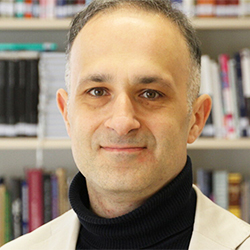
Prof Stefano Braghiroli
Prof Stefano Braghiroli is an Associate Professor of European Studies at the Johan Skytte Institute of Political Studies, University of Tartu, where he also serves as Director of the Master's programme in European Studies. He received his PhD from the University of Siena (Italy) in 2010 and has previously held positions at the ARENA Centre for European Studies (University of Oslo) and the Bahçeşehir University Center for Economic and Social Research (BETAM) in Istanbul.
His research focuses on party politics in the European Parliament, EU politics, Euroscepticism and populism, and comparative politics. His recent work has appeared in leading academic journals, including the Journal of Contemporary European Studies, New Perspectives, Southeast European and Black Sea Studies, Journal of Legislative Studies, East European Politics, and Religion, State and Society, as well as in edited volumes published by renowned academic presses.
In 2025, he was awarded the Order of the Star of Italy (Ordine della Stella d’Italia), rank of Knight (Cavaliere), by the President of the Italian Republic, Sergio Mattarella.

Dr Marina Nord
Dr Marina Nord is a postdoctoral researcher at the V-Dem Institute (University of Gothenburg, Sweden) and is one of the authors of the V-Dem Institute’s annual Democracy Report. Her research focuses on explaining autocratization and democratization processes, sources of democratic resilience, as well as interplay between economic processes and regime transformation. Before joining the V-Dem Institute, she worked on several research projects at the Hertie School and at the German Institute for Economic Research, where she became passionate about bridging the gap between academic research and policy domains.
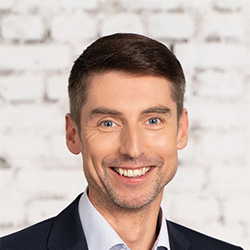
Margo Loor
Moderator
Margo started his journey in Estonian Debating Society in 1994 as a competitive debater to gain stage confidence, public speaking techniques, the ability to clearly express thoughts, time management, analytical skills and thinking. Specializing in law at the University of Tartu and work at the law firm Hedman Osborne Clarke gave him the skills of systematic thinking and calm, rational negotiation as well as knowledge of meeting formats. In Good Deed Foundation, Margo was responsible for facilitating strategy creation and strategic discussion of organisations in his portfolio, giving him abilities of visually guiding and clarifying meetings and methods for leading strategic planning scenarios.
As a CEO of Estonian Debating Society for 4 years, Margo was often in situations, where it was necessary to talk to the media or to carry out joint projects with media channels. Multi-year inside experience with media production, especially television and online media, working side by side with producers, directors, editors, was the valuable added skillset. Volunteering his time to Network of Estonian Nonprofit Organizations as their chairman of supervisory board has taught Margo one-on-one coaching, which relies heavily upon listening skills and leading by asking socratic questions. Same skills, that enable a moderator to steer a difficult discussion. Additionally, Margo has developed various conversational abilities in non-formal training courses, such as Gordon Training, non-violent communication and vocal skills.
Lecture: ‘What is Democratic Resilience and how can we strengthen it?’

Prof Wolfgang Merkel
Prof Wolfgang Merkel is a German political scientist. In 2020 - 2022 he was a Fellow at the Democracy Institute of the Central European University (CEU) in Budapest, prior to that from 2004 to 2020 he was Director of the Department of Democracy and Democratization at the Berlin Social Science Center and Professor of Comparative Politics and Democracy Studies at Humboldt University of Berlin. In 2007 he was appointed as a member of the Berlin-Brandenburg Academy of Sciences and Humanities. Merkel is one of the most respected representatives of comparative politics in the German-speaking world. He has significantly shaped research on democratization processes, system changes, and system collapses, his most recent publications open up the topic of democratic resilience.
Merkel has received numerous academic honours and memberships for his research. In January 1996, Merkel received a first prize from the Fritz Thyssen Foundation for his article "Restrictions and Opportunities for Democratic Consolidation in Post-Communist Societies of East Central Europe in Comparison." Since 1998, Merkel has been a non-partisan full member of the SPD's Basic Values Commission. Since December 2007, he has been a full member of the social science class of the Berlin-Brandenburg Academy of Sciences and Humanities. He was appointed to the academic advisory board and the university commission of the University of Heidelberg (2006–2012). Merkel is a member of the advisory board of the Bertelsmann Transformation Index.
Integration Foundation’s 2025 studies and surveys
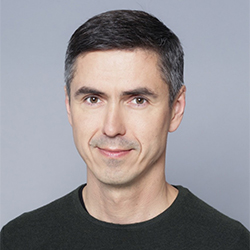
Urmo Kübar
Urmo Kübar has been working on Estonian civil society and civic space development issues for most of his professional life since the end of the last century: first as a journalist writing about these topics, then as a practitioner in both NGOs and the public sector. He has led the Network of Estonian Nonprofit Organizations EMSL, worked as a civic space advisor to President Kersti Kaljulaid, and has been involved in launching and maintaining initiatives such as Let's Do It communication day, Opinion Festival, Citizen Assembly, good practices for election campaigning, #GivingTuesday Estonia and others. Since 2021, Urmo has been leading the think tank Praxis, where was recently completed the study on volunteer engagement in the field of integration, that he will present at this conference.
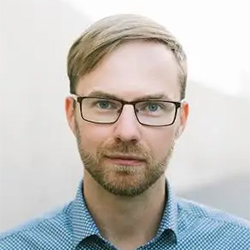
Professor Marko Uibu
Marko Uibu is an Associate Professor of Social Innovation at the Institute of Social Studies, University of Tartu. He is a founding member of the Social Innovation Lab and contributed in 2025 as an expert and researcher to the Integration Foundation’s commissioned analysis “Developing a Community-Based Language Learning Support Model.” His research and academic work focus on social change, community empowerment, beliefs, and health.
He has led or coordinated several applied research projects, including community and health studies in the Ülemiste City urban district, and the RITA Ränne project, where he headed the work package on community integration. Since 2015, he has also served as an expert in the national “Schools in Motion” programme.
Marko has an interdisciplinary background: he holds a PhD in Religious Studies and master’s degrees in Sociology and Social Anthropology as well as in Media and Communication Studies.
Panel discussion: ‘Sense of belonging and social cohesion – what comes first?’
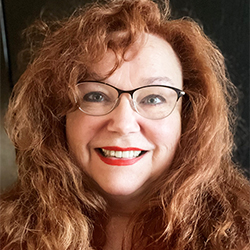
Dr. Anneli Portman
Dr. Anneli Portman is a Senior Specialist in the Safety and Protection unit at the Finnish Institute for Health and Welfare (THL). Her main tasks are related to developing the professional competence of social and health care professionals, which includes the creation of the vulnerability/risk assessment tool Valiant, and local and international networking. She is a member of the National Coordination Group for the Prevention of Violent Radicalization and Extremism, as well as a member of the Thematic Panel on Local prevention of the EU Knowledge Hub on Radicalisation. Her expertise includes the local prevention of violent extremism and multiprofessional collaboration, with a strong focus on violence prevention, social inclusion, and youth crime. Her research interests cover values, societal trust, and political rhetoric. She holds a PhD in social psychology from the University of Helsinki.
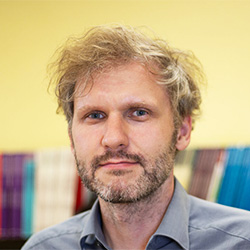
Andero Uusberg
Andero Uusberg is a professor of affective psychology at the University of Tartu and the scientific director of the Centre of Excellence in Welfare Studies. His research group studies understanding and influencing the “hotestt” side of human nature. How do emotions and desires arise? How do people try to manage them? How can solutions be designed to support people in this? In addition to basic research, Andero promotes the application of psychology and other behavioral sciences to solving societal problems.
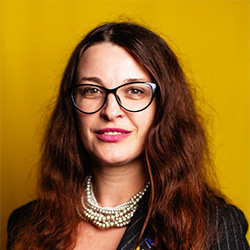
Dr Olha Mukha
Olha Mukha, PhD, is a cultural analyst and philosopher, cultural manager, curator and expert on international communication and human rights. Known for her extensive work in cultural diplomacy and human rights.
She is Co-Founder and member of Directors Board of Institute of Resilience in Reconstruction (London), Co-Founder and Programme Director of the Ukrainian Association of Cultural Studies - Lviv and Head of Educational and International Department of Memorial Museum “Territory of Terror”. Senior Strategist at Strategic Communications (IN2).
She is an expert in crisis communication, creating participant journeys for sensitive topics, aesthetic perception, and memory studies, including oral history practices.
Curator and co-author of the illustrated literary-encyclopaedic guidebook "Lviv – City of Inspiration. Literature" (Old Lion Publishing House, 2017; awarded as best guidebook of 2018). Curator of the publication and moderator of the book and project "Dialogues On War" (VIVAT, 2024). Co-author of Stories from Ukraine: Believers (Kovyla Publishing, 2024)
Author of over 80 scientific publications, numerous articles, and columns.
Olha Mukha was the University professor in Lviv University and Pedagogical University of Kyiv, teaching culture management, legal aspects of culture market and philosophical disciplines over 15 years. She defended her PhD dissertation in Philosophy on "Category of Human Bodiness in Philosophical and Theological Tradition in the Early West European Middle Ages" (2007) and LLM (2008), docent and academic researcher. She curated a number of exhibition formats, also consulted the rebranding and development strategies of various culture institutions.
She is a Co-Founder and former Chairwoman of the Lviv City of Literature UNESCO Office (from 2014 to 2016), representing Ukrainian literature abroad and Honorary Ambassador of Lviv (2020-2022).
Curator of UNSEEN FORCE - Ukrainian non-violent resistance, “Lost Childhood”, “Wounded Culture” projects, co-curator of “ANGELS” exhibition (section “Kitsch”).
Author and Host in PODCAST #gentleukrainization (UA)
Host and Moderator of DIALOGUES ON WAR (ENG)
Member of PEN Ukraine
Information and Publishing Lead and Member of the Executive Board of the Global Ukrainian Scouts Organisation PLAST. Member of the CHYTOMO Expert Council.
Head of the Jury of Encounter Award (2023), jury member of Chytomo Award (2024).
Between 2018 and 2023 Olha Mukha worked for the Headquarter of PEN International in London as Congresses, Committees and New Centres Manager, continuously sharing this position with her expert involvement in art, cultural, human rights, and academic projects.

Kristjan Kaldur
Kristjan has worked at the Institute of Baltic Studies since 2007. His main area of work and interest is migration and integration, and he also has a keen interest in issues related to the information society and the data-driven world.
Kristjan is originally from Jõhvi, graduated from Hugo Treffner Gymnasium Mathematics class, and holds a Master’s degree in Comparative Politics from the University of Tartu. During his studies, he has studied at various universities in Germany and Georgia on long-term scholarships. He is pursuing a PhD at the Johan Skytte Institute of Political Studies, University of Tartu, where he also supervises BA and MA students on nationalism, ethnopolitics and migration.
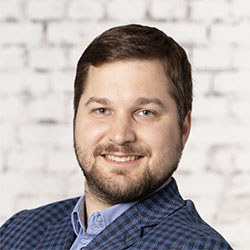
Vladislav LuŠin
Moderator
Vladislav has previously worked as a correspondent for the Estonian Broadcasting Corporation, as an advisor to the Minister of Health and Labour at the Ministry of Social Affairs, as the Communications Manager of the Youth School, as the Head of the Russian-language branch of the Estonian Debating Society and as the Communications Manager of the Freedom School. Vladislav is currently working as the director of the Laulasmaa School.
Vladislav holds a Bachelor's degree in Linguistics from the University of York (UK) and a Master's cum laude in Change Management in Society from the University of Tartu.
Summaries and closing remarks
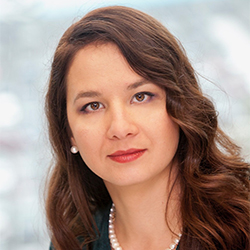
Marianna Makarova
Conference program director
Marianna Makarova collaborates with the Integration Foundation in 2025 and 2024 to prepare the program for the annual International conference on integration. She also works at PractNet to advise Moldova’s Center for Strategic Communication to strengthen societal resilience in Moldova. In 2018–2023, Marianna served as strategic communication adviser at the Government Office of Estonia, providing research-based insights for crisis communication during the COVID-19 pandemic and the war in Ukraine. Prior to that she worked at the Integration Foundation as Head of research development and restarted the tradition of the international Integration conference in 2016 and 2017, as well as contributed to integration and cultural policy development as an expert, worked in academia and managed the journal Studies of Transitional States and Societies.
Marianna holds an MSc in Psychology from the University of Tartu and is pursuing a PhD in Political Science and Governance at Tallinn University. Her research explores how identity, historical narratives, labor market dynamics, and attitudes toward diversity shape social cohesion and intergroup relations.
Integration Conference
12.11.2025
Hilton Tallinn Park
Fr. R. Kreutzwaldi 23, Tallinn
